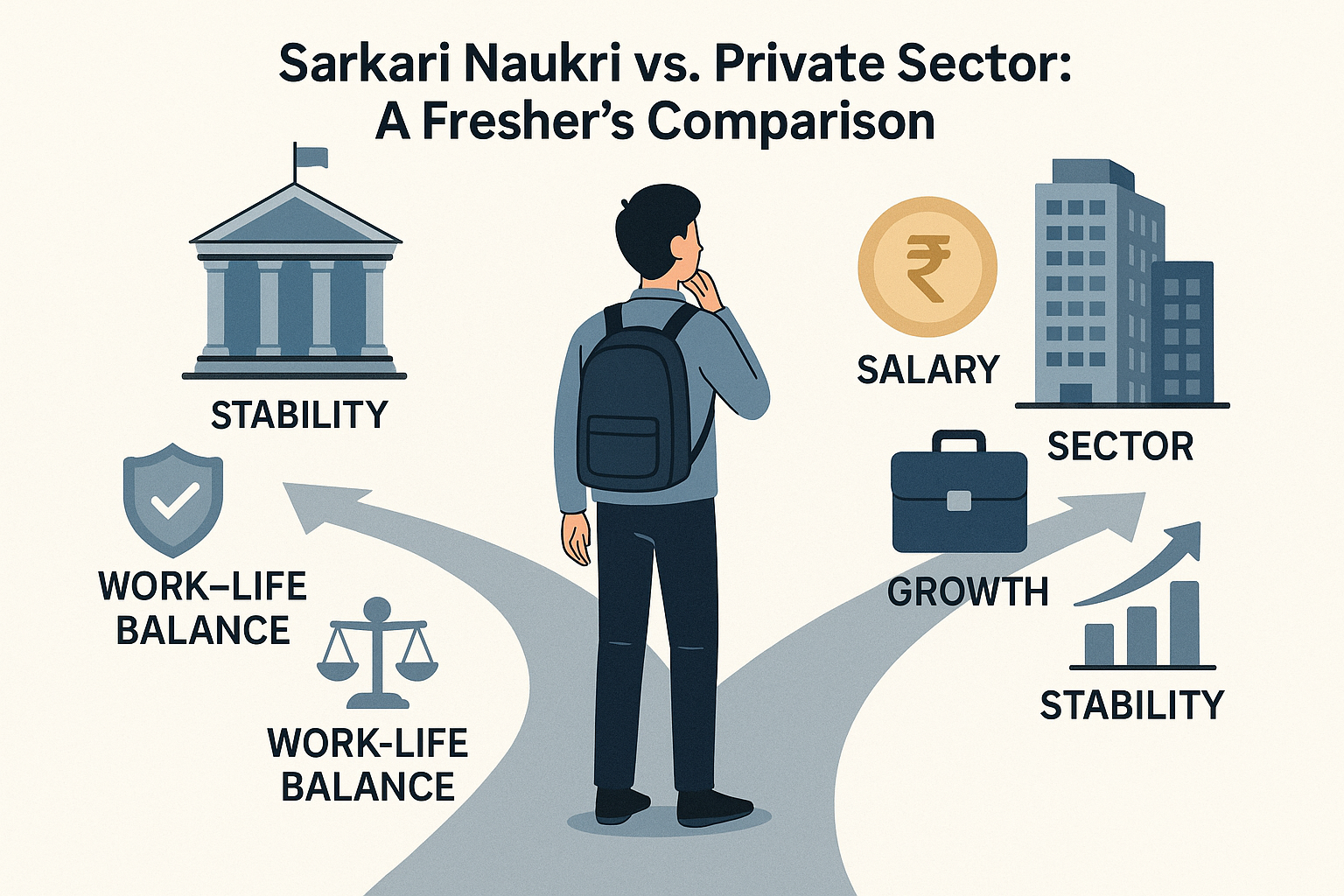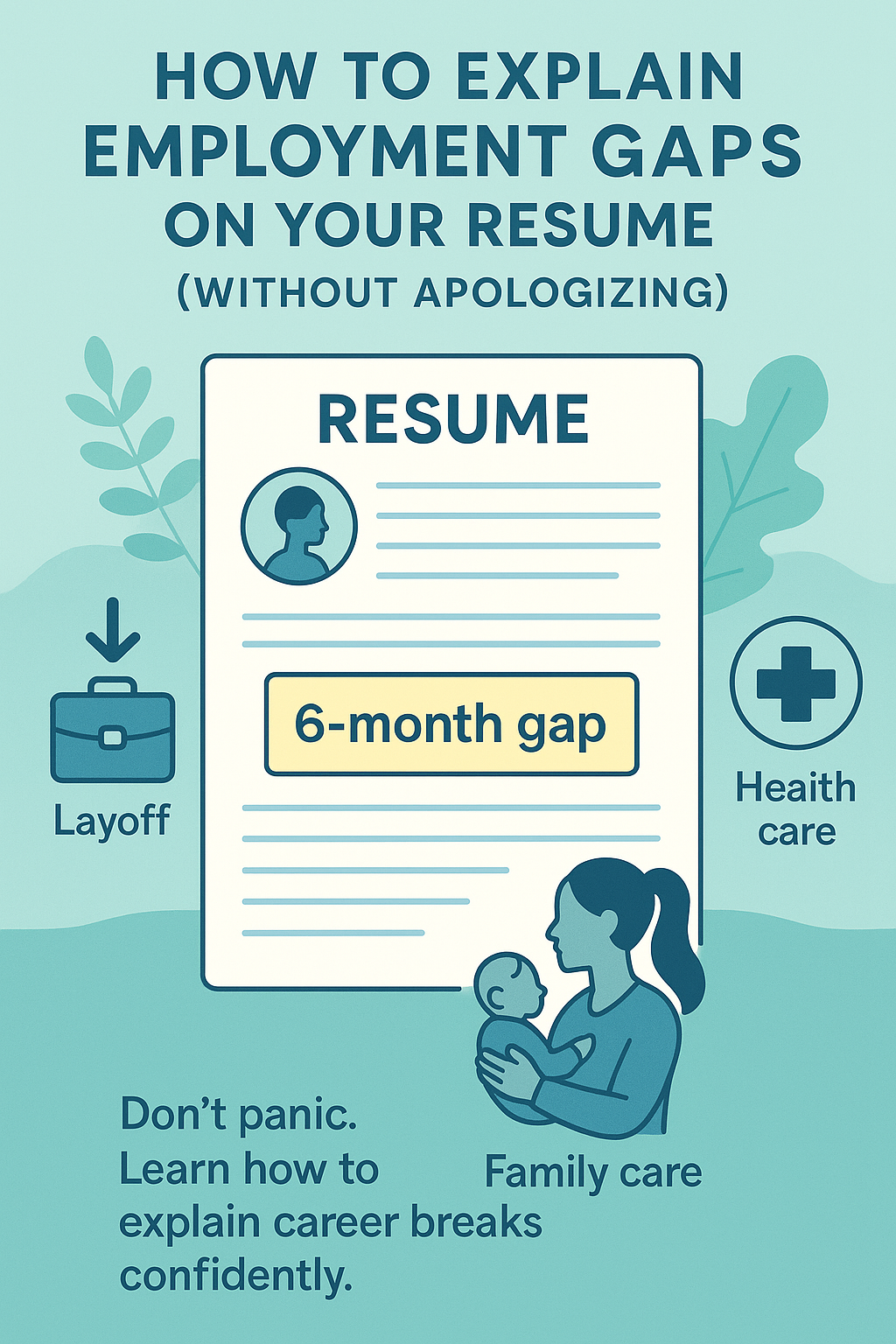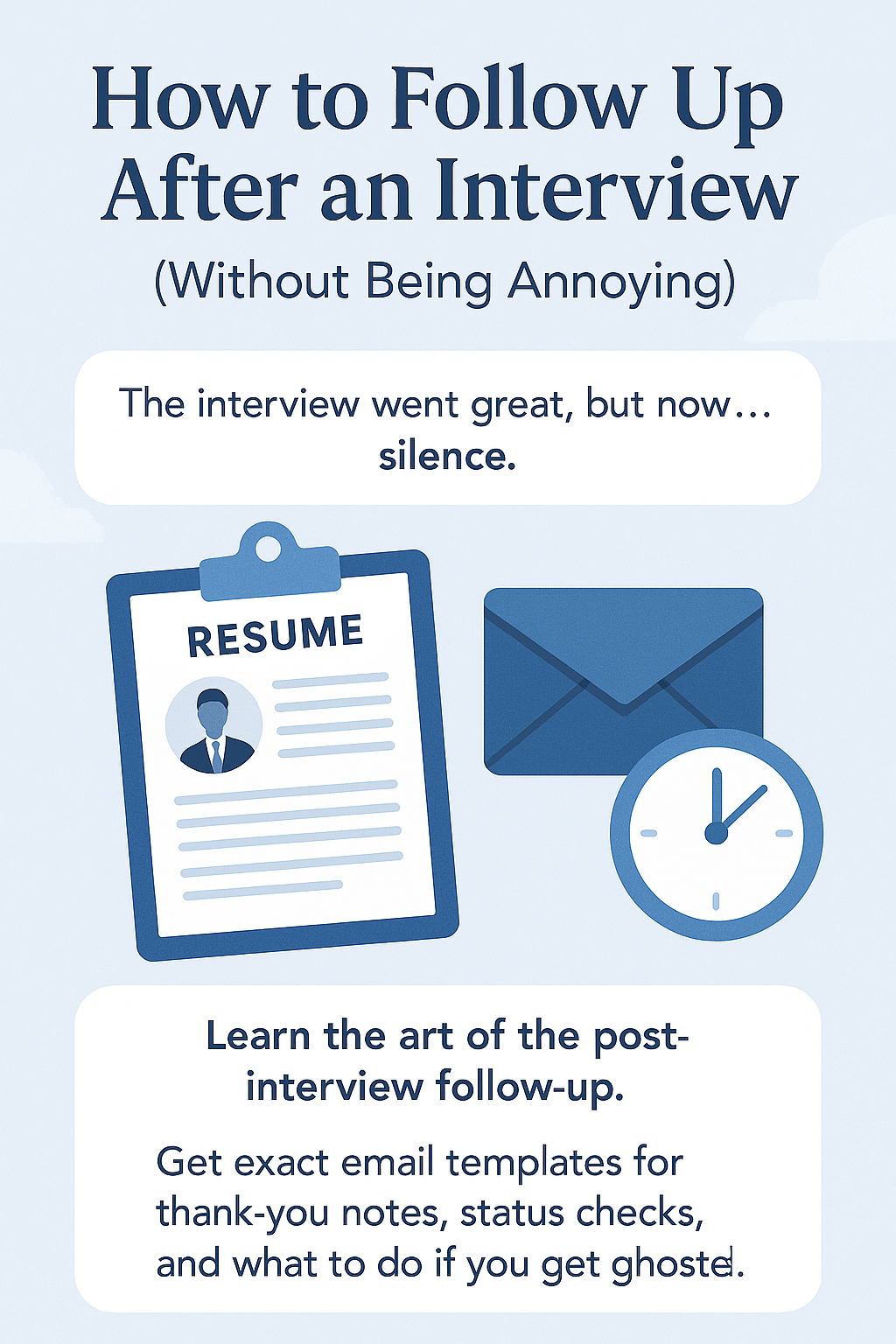
Sarkari Naukri vs Private Sector: A Fresher's Comparison
As a fresher standing at the threshold of your professional life in India, you face one of the most fundamental and impactful career decisions: should you pursue the stability and prestige of a Sarkari Naukri (government job) or embrace the dynamism and potentially faster growth of the private sector? This is more than just a choice between employers; it's a choice between two distinct work cultures, career trajectories, and lifestyles, each with its own compelling advantages and significant trade-offs.
For generations, the allure of a government job has been deeply ingrained in the Indian psyche. It represents security, respectability, predictable work hours, and a pension that promises a comfortable retirement. Families often encourage their children to pursue this path, viewing it as the ultimate symbol of a successful and stable career.
However, the rapid growth and globalization of the Indian economy have created a vibrant and incredibly attractive private sector. Driven by innovation, competition, and global best practices, private companies often offer higher starting salaries, faster promotions, opportunities to work with cutting-edge technologies, and a more dynamic, performance-driven work environment.
For a fresher, navigating this choice can be incredibly confusing. You're bombarded with conflicting advice from parents, professors, and peers. The long-term security of a government job seems appealing, but the immediate rewards and faster pace of the private sector are equally tempting. Making the wrong choice can lead to years of dissatisfaction, while the right choice can set the foundation for a fulfilling and prosperous career.
There is no single "right" answer. The best path for you depends entirely on your personal priorities, your career aspirations, your risk tolerance, and the kind of work-life balance you envision for yourself. This guide is designed to provide a clear, balanced, and objective comparison between Sarkari Naukri and private sector jobs, specifically for freshers. We will break down the key differences across crucial parameters like job security, salary, career growth, work culture, and work-life balance, empowering you to make an informed decision that truly aligns with your individual goals.
Parameter 1 Job Security The Fortress vs The Open Field
This is often the most significant deciding factor for many aspirants. * Sarkari Naukri: Unmatched job security is the hallmark of government employment. Once confirmed, employees are typically protected from layoffs except in cases of serious misconduct. This provides immense peace of mind, especially during economic downturns. The stability allows for long-term life planning without the constant fear of redundancy. * Private Sector: Job security in the private sector is largely performance-based and market-dependent. While high performers are valued, companies may resort to layoffs during economic slowdowns or if business priorities shift. However, the skills you gain are often highly transferable, providing a different kind of security – the security of your own employability in the open market.
Parameter 2 Salary and Compensation The Slow Burn vs The Potential Sprint
The financial rewards differ significantly, especially in the early stages. * Sarkari Naukri: Starting salaries for most government jobs (especially Group B and C roles) are often lower than their private sector counterparts. Pay increases are typically based on seniority and pre-defined pay commission scales, leading to slow but steady and predictable increments over time. The real financial value often lies in the comprehensive benefits package, including housing allowances, healthcare (CGHS), and the post-retirement pension (though the New Pension Scheme applies to newer recruits). * Private Sector: Starting salaries for freshers, particularly in high-demand fields like IT, finance, and consulting at top-tier companies, can be significantly higher than in government roles. Salary growth is often much faster and directly linked to performance. High achievers can see substantial jumps in compensation within just a few years. However, benefits packages can vary widely between companies, and post-retirement pensions are rare (reliance is on PF and personal investments).
Parameter 3 Career Growth and Learning Opportunities Structure vs Speed
How quickly you climb the ladder and the skills you acquire differ dramatically. * Sarkari Naukri: Career progression is generally structured, predictable, and based on seniority and internal departmental exams. Promotions happen at regular, pre-defined intervals. While the government does offer training programs, the exposure to cutting-edge technologies or rapidly evolving business practices might be limited compared to the private sector. Growth is steady but often slower. * Private Sector: Career growth is typically faster and more meritocratic. High performers can get promoted quickly based on their contributions, not just their years of service. The private sector offers immense opportunities to work with the latest technologies, learn new skills rapidly (often through on-the-job challenges), and gain exposure to diverse projects and global clients. Learning agility is highly valued. However, the path can be less predictable, and competition for senior roles is intense. Honing your skills on platforms like JobPe's Coding Practice or Allrounder.ai can be crucial for staying competitive.
Parameter 4 Work Culture and Environment Predictability vs Dynamism
The day-to-day work environment presents a stark contrast. * Sarkari Naukri: Government offices often have a more formal, hierarchical, and process-driven culture. Work hours are typically fixed and predictable, contributing to a stable work-life balance. The pace of work can sometimes be slower, with a strong emphasis on following established rules and procedures. * Private Sector: The culture is generally more dynamic, fast-paced, and results-oriented. There is often less hierarchy and more emphasis on innovation, collaboration, and meeting targets. Work hours can be longer and less predictable, especially in client-facing roles or during critical project deadlines. The environment is often more competitive but can also be more stimulating.
Parameter 5 Work-Life Balance The Traditional Promise vs The Modern Challenge
Achieving a healthy balance between work and personal life is a key consideration. * Sarkari Naukri: This is traditionally seen as a major advantage of government jobs. Fixed working hours, numerous public holidays, and generous leave policies generally allow for a better work-life balance and more time for family and personal pursuits. * Private Sector: Work-life balance can be a significant challenge in the private sector, particularly in high-pressure industries. While many companies are now focusing more on employee well-being and offering flexible work arrangements, long hours and demanding deadlines are still common. Achieving balance often requires proactive boundary-setting by the employee.
How to Choose The Right Path for YOU
There is no universally "better" choice. The ideal path depends on your personality, priorities, and long-term vision.
- Consider Sarkari Naukri if: Your top priority is job security and stability. You value a predictable work schedule and a clear, albeit slower, career path. You are comfortable with a more formal, process-driven environment and are motivated by public service. You are prepared for a highly competitive entrance examination process. Navigating government job portals effectively is key here.
- Consider the Private Sector if: You are ambitious and driven by fast career growth and higher earning potential. You thrive in a dynamic, competitive, and results-oriented environment. You are eager to learn new skills quickly and work with cutting-edge technologies. You are comfortable with a degree of job insecurity and potentially longer working hours in exchange for greater rewards. Building a strong resume using tools like the JobPe Resume Builder and acing interview questions focused on performance and potential are crucial.
Conclusion Your First Step Defines Your Journey
Choosing between a government job and a private sector role is one of the most significant decisions a fresher will make. Both paths offer unique rewards and come with distinct challenges. Resist the pressure to follow a path simply because it's what's expected. Instead, engage in deep self-reflection. What truly motivates you? What kind of work environment do you thrive in? What are your long-term financial and lifestyle goals?
By honestly assessing your own priorities against the clear differences between these two sectors, you can make a conscious, informed choice. This first step will set the direction for your entire professional journey, so choose wisely, choose confidently, and then commit fully to making the most of the path you've selected. To explore opportunities in both sectors and stay updated, consider setting up specific job alerts.
For more resources to help you explore career paths and navigate your job search, https://jobpe.com.

Creative Content Writer






